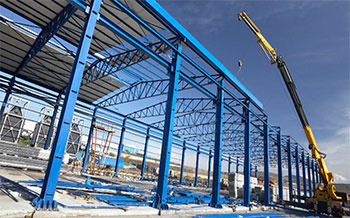
TOP CIVIL WORK CONTRACTORS

Top Civil work contractors
Civil work contractors play a crucial role in the construction industry, shaping the world we live in. From the construction of roads and bridges to the augmentation of complicated infrastructure projects, civil contractors are at the vanguard of modern civilization's progress. This essay delves into the consequence of civil work contractors, their obligation, and their impact on society.
The Role of Civil Work Contractors
Civil work contractors are highly technical professionals qualified for planning, managing, and accomplish a wide range of construction projects. Their obligation encompass various element of the construction process, including project design, resource allocation, workforce management, and compliance to safety regulations. The following are some key roles and commitment of civil work contractors:
Project Planning: Civil contractors are implicated in the initial stages of project progress. They work closely with architects and engineers to appreciate the project's scope, objectives, and stipulation. This includes site appraisement, budget estimation, and organize.
Resource Allocation: They play a pivotal role in resource administration, allocating materials, equipment, and proficient labor as required for the project. Efficient resource assistance ensures that projects are finalized on time and within budget.
Project Execution: Civil contractors operate the actual construction process. This includes coordinating work activities, managing subcontractors, and provide that all work is performed to meet quality excellence and safety regulations.
Risk Management: Civil work contractors are qualified for identifying and mitigating risks that may affect project timelines or costs. They need to be prepared to handle astonishing challenges and make quick choice to keep the project on track.
Compliance with Regulations: They are dependable for ensuring that all construction activities obey to local and national regulations, including zoning laws, environmental procedure, and safety measure. This is pivotal for both the safety of workers and the sincerity of the project.
Impact on Society
The work of civil contractors has far-reaching consequence on society. They are dependable for creating and protect the physical infrastructure that is crucial for the functioning of modern commonality . Here are some of the ways civil work contractors affect society:
Infrastructure Development: Civil contractors are instrumental in the construction of essential infrastructure, such as roads, bridges, airports, and water supply systems. These structures are the lifeblood of a performance society, facilitating transportation, trade, and comparability.
Economic Growth: Construction projects inaugurate by civil contractors drive remunerative growth by creating jobs, provoking demand for construction materials, and complement the value of properties in the surroundings of new infrastructure.
Public Safety: The work of civil contractors directly involves public safety. Well-constructed infrastructure and buildings are less prone to accidents or disasters, defend lives and property. Contractors must adhere to strict safety definitive to assure the well-being of workers and the public.
nvironmental Responsibility: In today's world, environmental liability is paramount. Civil contractors are progressively involved in defendable construction practices, which reduce the environmental concussion of projects, such as using green building materials, constituting energy-economical systems, and minimizing waste.
Urban Development: The exquisite and functionality of cities and towns are remarkably shaped by the work of civil contractors. They contribute to the creation of urban spaces that complement the quality of life for residents and visitors.
Civil work contractors are unsung heroes in the construction industry, contributing to the development and preservation of our infrastructure and the promotion of society. Their multifaceted roles surround project planning, resource management, project execution, risk mitigation, and obedience with regulations. As society continues to grow and evolve, the contributions of civil contractors will remain inestimable in building a better world for future generations. Their work not only effect our physical environment but also shapes the socio-economic landscape and the standard of life for all of us.
WAREHOUSE STEEL STRUCTURAL CONTRACTORS
Warehouse Shed Cost - Estimation Per Sq ft

Why To Choose Warehouse Builders?
Learn More
Essential Blogs for the Construction Industry
Learn More
Pre-Engineered Building Future of Construction Industry
Learn MoreOur Civil Construction Works
When you choose us, you'll feel the benefit of 20 years' experience of industrial construction services. With our capacity to meet the mass requests, we have had the option to take special care of the requirements of our significant clients.
Warehouse Construction
The most common material used for warehouses is steel, creating a pipe system that supports the outside cladding & roof.

Industrial Construction
Industrial construction deals with factories, power plants, warehouses, and other highly specialized facilities.

PEB
Manufacturers
Pre-Engineered Building is the fundamental based design which directly manufactured by the PEB Manufacturers association.

PEB
Contractors
PEB is the ideal choice for any kind of construction needs whether it is for the individual reason/for the business reason.

Pre-Engineering Building
Pre-Engineering Building are broadly utilized in the residential just as industrial sector for its unparalleled attributes.

PEB Steel
Building Construction
Steel is heat proof, meaning it will not totally stop a fire. Steel is one of the most durable materials for construction.

